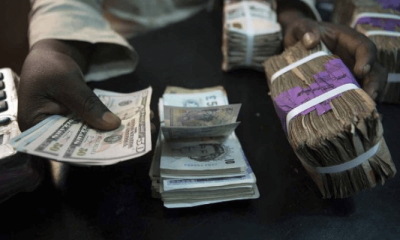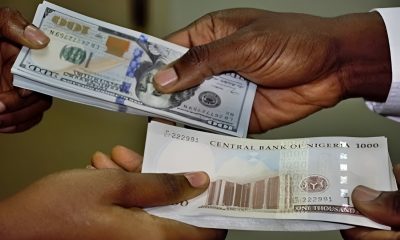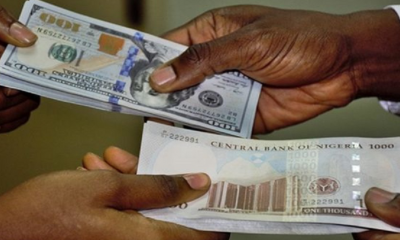More than a month after the Central Bank of Nigeria (CBN) floated the Naira at the forex market, the country’s market for exchange-traded futures has ground to a standstill as wide fluctuations in the local currency deter trade.
On Monday, the Naira exchange rate to the Dollar dropped by N14.22 at the closing of trading on Monday, going for N792.04 to Dollar at the official market.
Meanwhile, the average naira to dollar exchange rate in the Bureau De Change window of the official market was N847.02/$1, up from N823.3/$1.
The black market average rate for the naira to pound was put at N1103.9/£1, which is N29 higher than the N1074.9/£1 rate disclosed on Friday.
Similarly, the naira to euro rate closed upward, moving from N929.56/€1 to N952.5/€1, as the cost of the European currency increased by N22.94 kobo.
READ ALSO: Naira hits N792/$1 at official market, drops further against Pound Sterling
To help improve liquidity, the central bank also scrapped trading limits on oversold foreign-exchange positions, and allowed hedging of short positions through over-the-counter futures. But the futures market has failed to gain “any noticeable traction” as appetite remains low, Rand Merchant Bank said in a note on July 20.
With traders unsure where the naira will finally settle, they’re not willing to take the risk of selling or buying naira futures, according to Tajudeen Ibrahim, head of research at Chapel Hill Denham in Lagos said by phone.
“There is little or no clarity around price discovery right now,” Ibrahim said. “Until there is clarity on what pricing is now, that will dampen the futures appetite. When the spot is 750 today, 800 tomorrow and 850 the next day, it means the market has not discovered the price, so it affects futures contracts.”
READ ALSO: Naira exchange rate gap widens in official, black market
The central bank hoped an easing of exchange controls would boost capital inflows that would help clear a backlog of dollar demand that had built up over years. That led to an immediate devaluation of about 40% in the naira, but inflows are yet to pick up significantly as investors wait to see if the government will sustain the policy.
Foreign investors sold more stocks than they bought in June on the Lagos-based stock exchange, with outflows more than doubling from May as investors took advantage of the devaluation to exit long-held positions.
Foreign investors have adopted a stance of “wait and see how the market plays out,” said Kayode Omosebi, a banking analyst at Asset & Resource Mgmt Co Ltd in Lagos said by phone. “You will see the futures market start increasing when you start seeing inflows, particularly portfolio inflows.”

 Health & Fitness5 days ago
Health & Fitness5 days ago
 Aviation1 week ago
Aviation1 week ago
 Aviation6 days ago
Aviation6 days ago
 Aviation6 days ago
Aviation6 days ago
 Aviation6 days ago
Aviation6 days ago
 Aviation5 days ago
Aviation5 days ago
 Featured3 days ago
Featured3 days ago
 Crime3 days ago
Crime3 days ago











